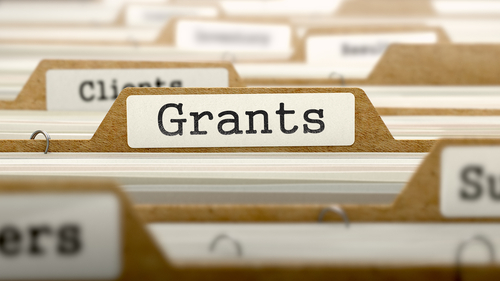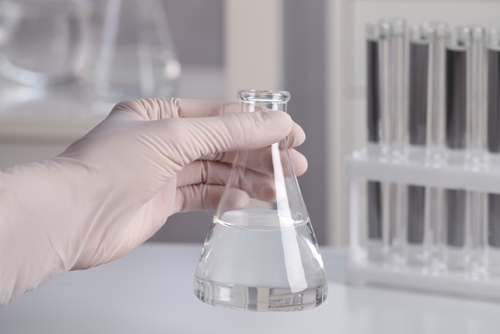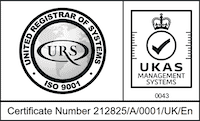Frequently asked questions (FAQs)
 Will The UK SAF Clearing House duplicate the support provided by the US and European SAF clearing houses?
Will The UK SAF Clearing House duplicate the support provided by the US and European SAF clearing houses?
No, the UK SAF Clearing House will be working in close collaboration with both the US and European SAF Clearing Houses in order to ensure the global SAF testing and approvals landscape is fully coordinated and integrated.
- I am a fuel producer based in the UK that has previously worked with the US Clearing House. Am I eligible for support?
Yes, advice and support is free on entry. The UK SAF Clearing House aims to support all companies with ambitions and tangible prospects of commercialising sustainable fuels. This includes products at any Fuel Readiness Level (FRL) and companies of any level of commercial maturity, regardless of previous engagement with the US Clearing House or other stakeholders.
- I am aware of the US and EU Clearing Houses, will I need to communicate with either or both in addition to the UK SAF Clearing House?
No, the UK, US and EU Clearing Houses are working in close collaboration with each other to prevent duplication of effort and ensure that each fuel producer has a single work stream. For fuel producers that span multiple regions the intent is that the Clearing Houses will work together to ensure that advice and support is channelled through a singular Clearing House. Please engage with the UK SAF Clearing House if you are unsure.
- Is the UK SAF Clearing House developing its own approvals process?
No. The UK SAF Clearing House will operate within industry established ASTM processes and specifications that have been developed and underwritten by OEMs, Airworthiness Authorities, Specification Authorities and key stakeholders. However, should an opportunity for improvement in the efficiency of the process be identified, the UK SAF Clearing House has the capacity and means to make representation to ASTM via the appropriate/approved channels.
- My company is not based in the UK, am I eligible for support?
The UK SAF Clearing House is designed to support UK industry in the deployment of sustainable aviation fuels, but DfT recognises that many producers are international organisations. Therefore, the UK SAF Clearing House is open to approaches from all potential candidate fuel producers, regardless of their country of origin. Where it is appropriate, the UK SAF Clearing House will offer advice and guidance, and may signpost to other international clearing houses. With regards to financial support, see the specific grant eligibility criteria for companies or contact the UK SAF Clearing House directly to discuss.
- I have already applied for grants associated with SAF production and fuel testing. Am I eligible for support?
 Grants are available to all applicants regardless of their grant/funding history, as long as the specific package of work has not been previously funded. The activity will commence after the grant award date and is subject to grant eligibility requirements.
Grants are available to all applicants regardless of their grant/funding history, as long as the specific package of work has not been previously funded. The activity will commence after the grant award date and is subject to grant eligibility requirements.
- I am not ready to apply for fuel testing support but I would like advice on the SAF evaluation process. Will the UK SAF Clearing House still provide advice and guidance and do I have to pay for this support?
The UK SAF Clearing House will provide initial support and guidance free of charge to all potential SAF producers with ambitions to develop sustainable aviation fuels, regardless of the maturity of their company, process or product, as long as the eligibility requirements outlined in the stage 1 application are met. Please email us here.
- How long are fuel testing grants available for?
The SAF Testing Grant application window is now closed. Sustainable aviation fuel producers can still access expert support through the UK SAF Clearing House. Email us at info@safclearinghouse.uk. .
 I already have some product test results. Would the UK SAF Clearing House support me with further analysis and/or interpretation?
I already have some product test results. Would the UK SAF Clearing House support me with further analysis and/or interpretation?
Yes, the UK SAF Clearing House will support the interpretation of your previous test data for free, as long as your product meets the basic eligibility criteria. See stage 1 of the grant application process. Even if you have a detailed plan of your next steps towards commercialisation the UK SAF Clearing House advises that you reach out for support.
- I am concerned about the intellectual property (IP) of my product when engaging with the UK SAF Clearing House. What protocols does the UK SAF Clearing House have in place to protect my IP?
The UK SAF Clearing House is an ISO 9001 approved organisation, the operating model and procedures are founded on a high degree of data security and the management of intellectual property. Therefore, the UK SAF Clearing House data management policy is designed to ensure that adequate controls are in place in order to manage your data in line with the latest regulatory standards. This includes mandatory training for all staff members involved with handling data and industry recognised IT security systems. With regards to your intellectual property rights (IPR), you can determine the extent of the information that you make available and we will always be open to discussing this further with you. Furthermore, when making an application for testing support, you will have the opportunity to detail exactly which elements of the information you consider your IPR and flag what is commercially sensitive, meaning it cannot be disclosed under Freedom of Information (FOI) or Environmental Information Regulations (EIR).
- My product is in the very early stage of development and I have a very limited volume of product - will the UK SAF Clearing House still provide support?
Yes, the UK SAF Clearing House will provide guidance and assistance to any candidates regardless of the stage of development as long as the stage 1 application criteria are met.
- How many quotes are required from different test facilities to cover the cost of funding?
Where the funded activities could be carried out by more than one recognised provider and are valued at £5,000 or more, the Grant Recipient must provide evidence in a form satisfactory to the Authority that at least two (2) competitive quotes have been obtained for the provision of the services. In cases where this is not possible, where there is only one provider capable of providing the services for example, or where the value of the work is lower than £5,000, the Grant Recipient must keep a record of the reasons why that approach was thought to be appropriate.
- I am producing an intermediate (sustainable crude material). Where I can get advice and support to get this material upgraded into a viable Synthetic Blend Component (SBC) suitable for blending into jet fuel to produce SAF?
The UK SAF Clearing House maintains a comprehensive database of facilities throughout the globe that provide hydroprocessing and distillation capabilities at a range of scales and technology readiness levels (TRLs). Please reach out to the Clearing House for further information.
- How long does the evaluation and qualification process take?
The timeline for completing the D4054 evaluation process can vary widely, depending on several factors—such as the complexity and technical maturity of the proposed pathway, its similarity to existing industry experience, the availability and quality of supporting data, and how well that data is presented. Despite these variables, the UK SAF Clearing House is committed to supporting fuel producers throughout the process and helping to accelerate their journey toward qualification wherever possible.
- How much does the evaluation and qualification process cost?
The overall cost of the evaluation process can vary widely, influenced by factors such as the complexity of the fuel pathway, its resemblance to established industry experience, the scope of testing required, and the availability and quality of supporting data. In addition, the cost of producing reference samples—determined by each producer’s unique capital (CAPEX) and operational (OPEX) expenditures—is separate from the evaluation costs and must be considered independently.
Did you find this useful? | Join our LinkedIn Group for the latest news: |
